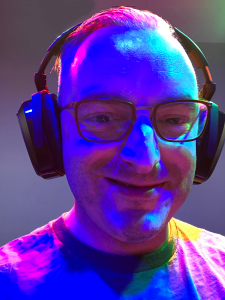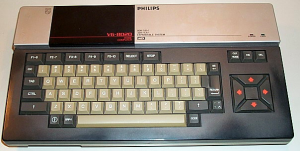Humans of Code Week – Ramon Moorlag, Code Week Ambassador, the Netherlands
08/08/22

By Ramon Moorlag, Code Week ambassador Netherlands
What sparked your interest in Code Week?
It started pretty recently. I talked with the Dutch Code Week Team and help them to reach more teachers in the Netherlands and find a foothold in every school. We have done this with the help of the Dutch Computer Science Teachers Association (i&i). At the same time, i&i had a different challenge; where to find great content to share in our network? A few weeks later I joined the Dutch Code Week delegation. This will be my third year as a Code Week Ambassador. The rest is, like they say, history 🙂
What advice would you give to someone who wants to learn/teach coding?
Start early. You can compare it to asking the question: ‘when do you plant a tree?’, the answer would be: ’go back 20 years and plant the tree.’ The same goes with learning how to code. Starting earlier with the appropriate tools will help students a lot to learn to code and to integrate it coding skills in their toolkit. With the website Hedycode.com, it’s easier than ever to start.
What do you like most about Code Week?
The International context of coding is so important. I really enjoy talking to my colleagues abroad, exchanging ideas, and cooperating on new concepts. Also, the Code Week Spring School was great, we had loads of fun there. We developed a new concept and called it the Code Week School Label and built a prototype. In the upcoming weeks, the Code Week Label will be presented…
How do you imagine the future of Code Week to look like?
Code Week will help a lot when coding is done more and more across the European Union. Digital literacy and coding are already part of the average toolbox. Sadly, not everyone has the same tools in their toolbox, this will greatly increase inequality in our society. Code Week can help bridge the gap.
What challenges have you encountered as an ambassador / leading teacher /teacher, and how did you overcome them?
My main challenges were the following: How to help teachers to learn to code? As well as, how can we help non-computer science teachers with coding? The solution is as simple as it is elegant. We use the same content for our students to help teachers learn to code.
What are the top three reasons everyone/kids should learn how to code?
Coding helps everyone get a firm grip on their private and professional environment. Coding is a ‘third’ attribute besides writing/reading and doing calculations. There is no discussion about the first two, this should be the same for coding. Coding and a basic understanding of computers, networks, and algorithms give a lot of freedom and grip on life.
How can interested people contribute to Code Week?
Code Week grants access to an international network of like-minded people. It helps a lot to start, to dive deep and to continue on the lifelong path of learning. Also, the merchandise is great as is the support of the EU team.
Which project/activity related to Code Week are you most proud of, and why?
I’m very proud of the Code Week School Label. A Label that can be requested by a Leading Teachers. It will verify that the applying school offers an extensive path to learning to code. There should also be a chapter in the mission of the school that it offers coding / digital literacy in the curriculum.
What advice related to coding inspired you most, and why?
My first computer was a MSX. It was built in the same year as I was born. 1983. It worked with cassette tapes and a tape recorder. Loading a program into the memory took time and I could hear what the machine was reading. White noise with beeps. I was 4 and I asked my mother how the computer could understand that. She introduced me to the concept of computer languages. With a lot of help I copied a program from a paper magazine. The magic of running the program for the first time had a massive impact on my life. I could control the computer. It’s like a super power. I was able to let the computer write my name on the screen, in massive letters. Computer scientists are not born, they are created. The years after MSX we continued to have computers in our home. I am very lucky to have parents who supported me.



